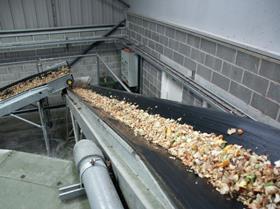
A new research network will help tackle the scourge of waste during food production, after receiving a £500,000 grant.
The Quality and Food Loss Network will attract researchers from multiple disciplines to find solutions for the massive food waste challenges facing the supply chain.
In the UK, 51 per cent of food waste happens before it even reaches consumers, during agriculture, post-harvest, distribution or processing.
A significant proportion of food loss relates to the inherent physiology of the crops, poor control of post-harvest biology, and the efficacy and appropriateness of the control systems applied.
The network will be jointly led by professor Leon Terry from Cranfield University and professor Carol Wagstaff from the University of Reading, who will link researchers with industry to tackle food waste across the supply chain.
Funding for the network comes from UK Research and Innovation’s Biotechnology and Biological Sciences Research Council (BBSRC).
Cranfield Plant Science Laboratory boasts one of the largest post-harvest research groups in the world, working to improve global food supply chains.
Current projects include modified atmosphere packaging to extend the shelf life of fresh produce, controlling dormancy and sprouting in potatoes and onions, and extending the ‘flavour life’ of UK apples through photonics.
Professor Leon Terry, director of environment and agrifood at Cranfield University, said: “Cranfield University has a long history of reducing postharvest food losses and we are delighted to be leading this network with UKRI and University of Reading.
“The network will allow us to better harness our national scientific talent to help achieve Sustainable Development Goal 12.3to halve per capita global food waste and reduce food losses.”
Karen Lewis, executive director of innovation at BBSRC said: “Bioscientists in the UK and around the world can play a vital role in meeting the challenge of cutting food waste.
“Through this new network BBSRC will link science and business to propose and analyse new approaches to tackle this key issue. Its outputs will be part of a global effort to address food security.”






No comments yet